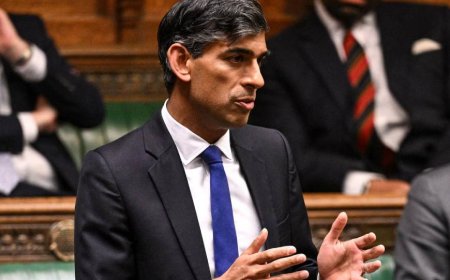UK mortgage rules could be eased to increase growth
FCA also aims to change law to try to prevent a repeat of mass compensation schemes for consumers such as PPI

Mortgage rules could be loosened by the City regulator as it comes under government pressure to increase economic growth and home ownership across the UK.
The move to “simplify responsible lending” for property purchases is part of a range of proposals put forward by the Financial Conduct Authority in an attempt to prove that the watchdog is not standing in the way of the Labour cabinet’s “growth mission”.
The FCA also aims to change the law to try to prevent a repeat of expensive mass compensation schemes for consumers, such as the payment protection insurance (PPI) scandal.
It follows complaints from investors and businesses over the potential costs of the car finance commission scandal, which could result in a combined £30bn bill for lenders such as Lloyds and Santander.
Regulators could end up reviewing how much first-time buyers are allowed to borrow and issue more loans to customers with smaller deposits, according to the Times, which first reported the changes. At the moment, banks are only allowed to lend 15% of their total mortgage loan book to people who are borrowing at least 4.5 times their annual salary.
The City watchdog said it was also considering removing the £100 contactless spending limit, “allowing firms and customers greater flexibility, drawing on US experience, and levelling the playing field with digital wallets.”
In a letter addressed to Keir Starmer and the chancellor, Rachel Reeves, the FCA chief executive, Nikhil Rathi, said the regulator was “already working to remove unnecessary regulation”. However, he promised to go further, including by helping give homebuyers a better chance of securing a mortgage.
Meanwhile, businesses fret over the looming costs of the car finance commission scandal, which City firms claim is dampening foreign investors’ appetite for UK company shares. The scandal, which relates to the way commission was disclosed to consumers, could cost lenders up to £30bn in compensation.
While the FCA aims to prevent wrongdoing in the first place, the regulator is consulting on how it can identify and address problems more swiftly, to avoid a need for massive compensation programmes in future.
“We can never rule out firms having to pay redress for serious misconduct,” Rathi’s letter said. “However, through proactive management of issues, and improved coordination with the Financial Ombudsman Service, we aim to prevent further significant FCA-led consumer redress exercises. As part of that, we are considering reforms to the redress framework which may need legislation.”
The FCA was responding to a letter from Reeves and Starmer, who contacted 17 UK regulators on Christmas Eve to tell them to put forward pro-growth proposals. Ministers are now summoning regulators to Downing Street for check-ins, in order to review their proposed plans and progress.
The FCA will be among those hauled into No 11 in the coming weeks.






































































































































